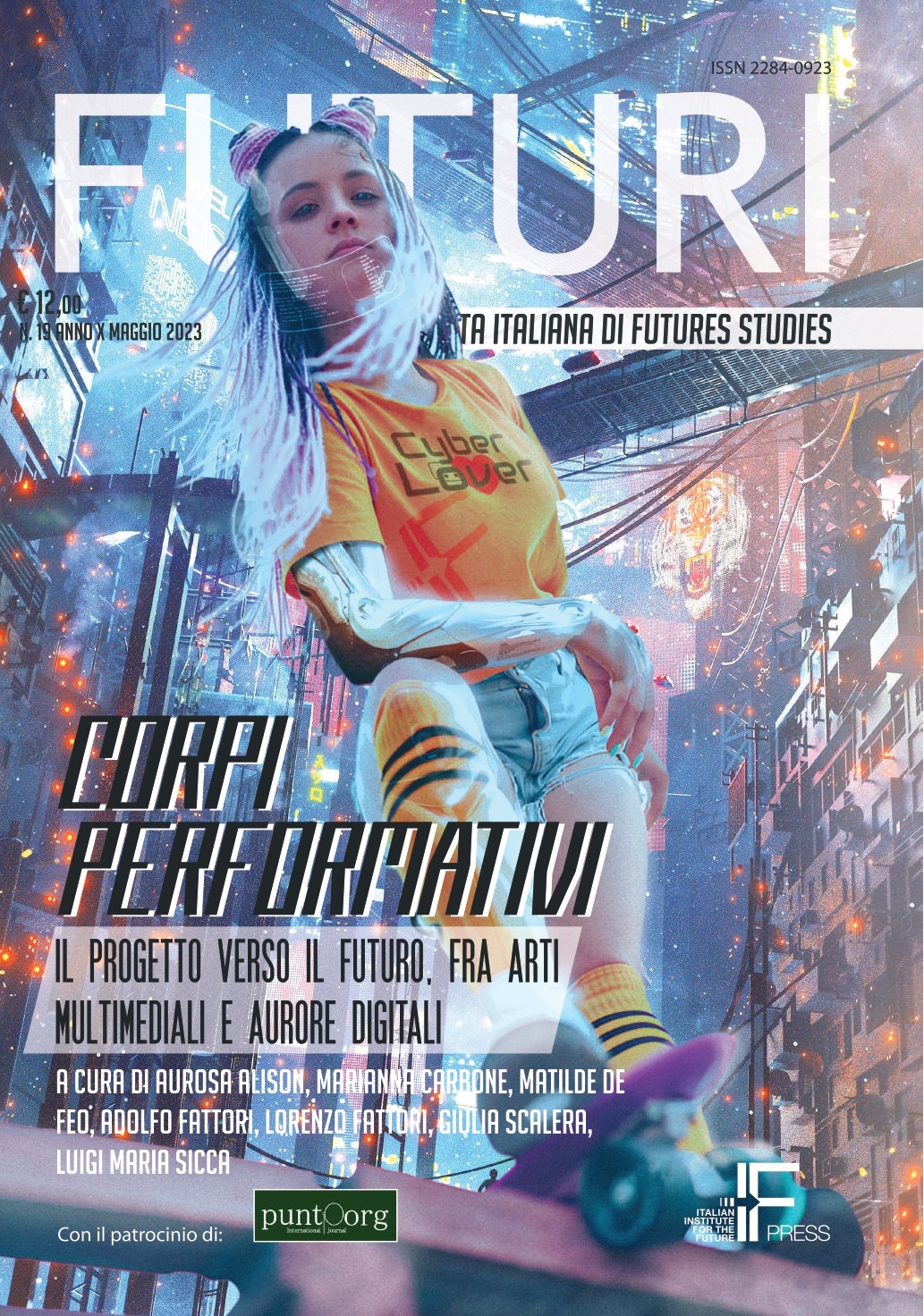
Pubblicato 21-01-2025
Parole chiave
- Pshichological,
- Change
Abstract
Technological determinism supports the idea of a close relationship between mental struc-
tures and the technologies available to society. A relationship in which these technologies, which
are becoming more than ever extensions of the human being, are profoundly changing the natural
sensory system. Analogue and digital are now in a constant dialogical relationship in which
new biological forms are taking shape. The question, therefore, arises as to the role of the
senses in such a dematerialised, virtual and conceptual contemporaneity. The interactivity
typical of life in cyberspace leads to new projective forms of the nervous system. As a re-
sult, the senses evolve and collide with the brain’s constant tendency to remain anchored
in the physicality of the body. All this leads to the paradox of high-performance machines
replicating sensory capabilities in a cognitive delegation process that leads to the atrophy
of natural human sensations. The design discipline should question the contemporary im-
plications of this change. This paper, therefore, assesses the implications and proposes
scenarios for exploring future possibilities for such fragile human capabilities.
